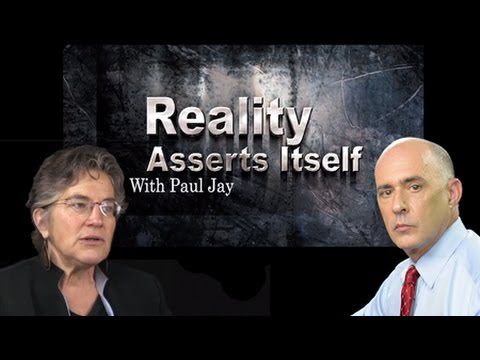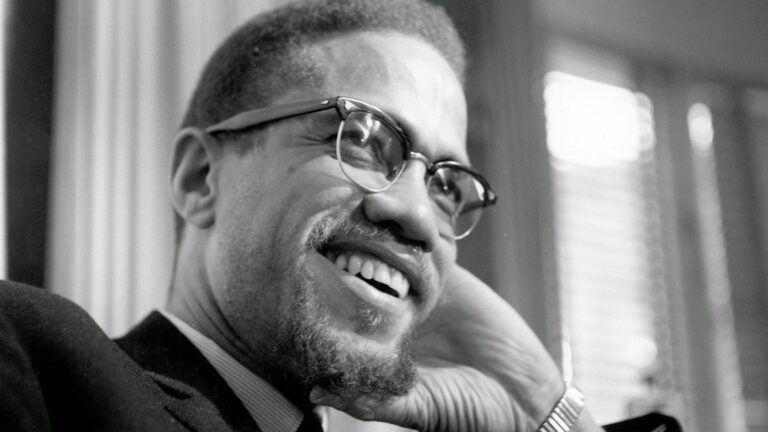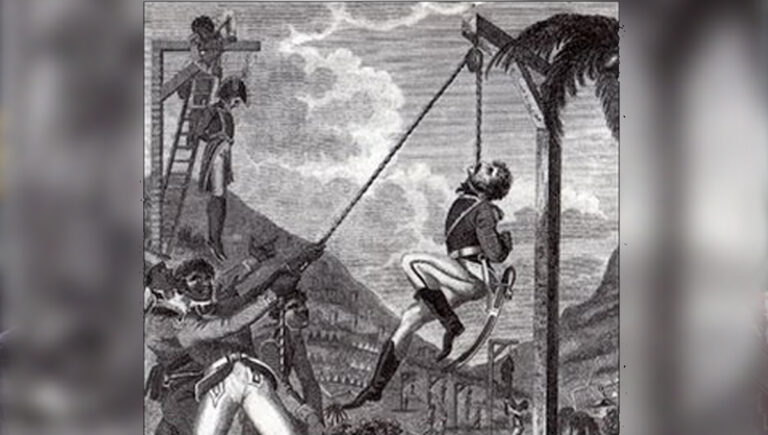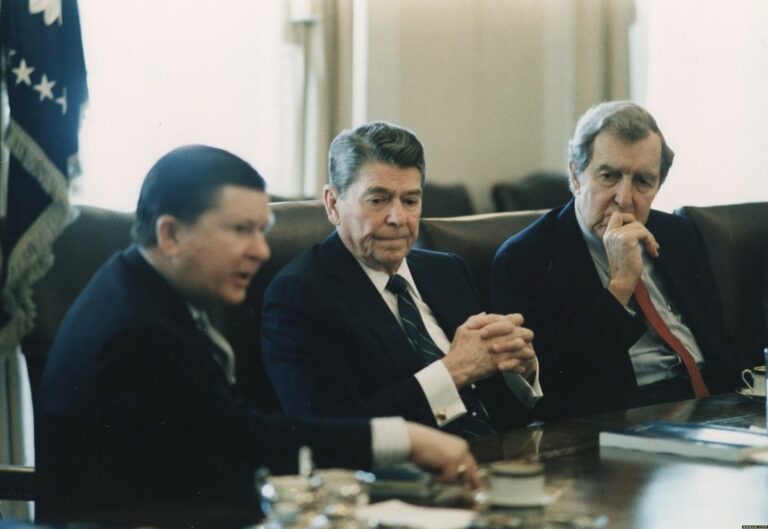This interview was originally published on March 10, 2015. On Reality Asserts Itself, Mr. Franklin says Malcolm believed the international order benefited Western capitalist interests over the masses of black, brown and oppressed white people.
PAUL JAY, SENIOR EDITOR, TRNN: Welcome back to The Real News Network. This is Reality Asserts Itself. I’m Paul Jay. And we’re continuing our series of discussions with Kamau Franklin. Thanks for joining us again.
KAMAU FRANKLIN, ATTORNEY AND ACTIVIST: Thank you.
JAY: So, one more time, Kamau serves as the southern regional director for the American Friends Service Committee, which is a Quaker social justice organization. He was a leading member of the Malcolm X Grassroots Movement. And he was also quite involved in Jackson, Mississippi, when Chokwe Lumumba, who was also a member of the Malcolm X Grassroots Movement, became mayor. But we’re going to pick up where we left off. We’re talking about Malcolm X. So, first of all, what was Malcolm X’s vision, version of self-determination for black Americans? He used the term African Americans now.
FRANKLIN: Yeah. Well, Malcolm used several terms– Afro Americans, I think, at the time was popular, and black, right? And every know and then he might slip and say Negro, but he tried to avoid saying it. I think Malcolm’s vision of self-determination was around resources within the black community had to be controlled by the black community. So that included whether or not we were talking about schools or that we’re talking about–when we’re talking about governments, when we’re talking about economics, that it was important in those situations where you had a majority of black people in a community or a state or a city or whatever it is, that they had to relate and control those resources that came into their community. And I think Malcolm at the end of his life was again talking about joining or being a part of larger coalitions and larger forces that tried to change American society in general. And I think Malcolm talked about a Western power structure, right? He talked about how the international order was such that it benefited Westerners, it benefited Western capitalist interests over the masses of black and brown people and oppressed white folks around the world. So I think Malcolm felt that not only was he still a nationalist, but he was also becoming an internationalist, and the two weren’t contradictory for him. And he was also a Pan-Africanist. And, again, some people would like to divide it up and say you can’t be all three, but it makes logical sense to me that you of course would be all three at the highest level of trying to come to some sort of political understanding of how the world works.
JAY: But was he ever a back-to-Africanist?
FRANKLIN: No, I don’t think Malcolm–I think Malcolm was back to Africa mentally, as in understanding the cultural history. The social-religious history of black folks extended before being brought to America in 1619. I think it was important in terms of what Malcolm thought, and still important, that African people here in the United States understand that there is a continent that’s full of lots of countries with lots of cultures which are closer into what it is that we come from than what we’ve been sort of adopted here within the United States, adopted, taken away from us, trained to understand and be a part of. And he thought by understanding the culture that was taken from us, it would help us become more complete human beings and would help us understand some of the differences in how we see the world and how we’re treated within the world, and a certain amount of dignity and self-respect would flow from that.
JAY: And that’s more or less your view.
FRANKLIN: Yeah, I agree with that mostly. Yes.
JAY: So if you’re a nationalist, then black Americans, African Americans in some way constitute a nation. In what way? ‘Cause I think in terms of ordinary or majority white opinion, they don’t get that.
FRANKLIN: Yeah, I think, in several ways. I think, one, you phenotype for the most part, right? So there’s something to be considered about that. But when you extend past the sort of–like, the nominalness of how people look to each other, you talk about culture, you talk about the ways in which black music functioned, you talk about language, the way in which black people talk to each other, you can talk about food, all the things that people think about as a culture. There may be some regional differences, but like anybody, if you put several folks in a room and they start talking to each other, they may gravitate to people that they think they have more in common with. And there’s also the culture of resistance, that black people have sort of struggled with, had been a part of since being, again, brought here, which is part of our history in America. And a lot of our sort of culture of resistance is sort of what makes us who we are. And I think, as another guest on your show once mentioned, that the sort of black political experience here makes us probably the most progressive group within the United States, right? The politics are largely more liberal and understands the need of public functions in order to help support larger communities and larger populations, and that’s not something that’s outside the sort of panacea of how society should work, and you can leave that kind of, like, sort of right-wing rhetoric in terms of a large amount of people behind. It’s not something that’s–there’s, like, 1 or 2 percent of the black population you can probably honestly say are conservatives, right?
JAY: Now, there used to be, even in the left movement, in fact, going back even into the Communist Party in the 1930s, there was an idea that self-determination actually meant a geographical part of the United States, the kind of black belt, would actually become, like, I don’t know, like, an autonomous zone within the country and so on. Did Malcolm ever subscribe to that? And what’s your sense of that?
FRANKLIN: If you read the chapter “1965” in Malcolm’s autobiography–it’s the last chapter of the book–there comes a part where Malcolm talks about the idea of states becoming the natural–Southern states becoming the natural homeland of African people. And that was because of his close connection to organizers in Detroit who formed the RNA, the Republic of New Afrika. And so there are, there’s–and some of which is taken from the earlier communist organizing belief in some of the things that Lenin was talking about and others.
JAY: Yeah. What Lenin writes something on the national question, one of his examples is African Americans, actually.
FRANKLIN: Yes. And you have folks who firmly believe that that area, because of the work that black folks have put into that land, because of the population center–still 50 percent of black population within the United States lives in the South, and, in fact, the sort of reverse migration is even increasing that more as more black folks leave places on the East Coast and the West to go back down to the South–that that would constitute the place where, if there was going to be nation building, it would happen there. And I still–I think I primarily still believe that African people should control our destiny, that black people should control their destiny. So if we as a people say we want to separate and form a nation state, then we have a right to make that choice. No one else has the right to make that choice for us. So I still think that that’s within sort of the paradigm of black thought and black thinking. And it expresses this ways not so much always within a nation state element, but in a community-control element, within a who in this gets to control resources. So it may not be as extreme as some people may think in terms of, like, revolutionary nationalism, but it filters all through black politics, right? And that’s something that I think–Malcolm didn’t sort of make that up. That’s something that comes pre-him, obviously, through the Garvey movement in certain ways and before that. But it’s something that I think he considered. I think he also thought about changing the larger society. I don’t want to leave that out. Malcolm, as well as most organizers and activists today who even subscribe to a certain amount of black nationalism, believe that part and parcel to any change that has to happen for the black community, it has to happen across the United States, and across the world, actually.
JAY: Well, it’s unimaginable–I think unimaginable–that there would ever be that kind of a black autonomous area, whatever you want to call it, a black actual geographical political entity, without a total transformation of American society.
FRANKLIN: Exactly.
JAY: There’s no way this society would ever allow such a thing.
FRANKLIN: No, I think you’re exactly right. And I think that’s something that, again, not only that Malcolm, but people who picked up on sort of the black power era–.
JAY: Let me go–one thing.
FRANKLIN: Yes.
JAY: The only imaginable way that happens prior to that is if somehow they want to create a Gaza.
FRANKLIN: Or Bantus, back in–.
JAY: Bantustans,–
FRANKLIN: Yeah.
JAY: –and create these sections of horrible ghettos. I mean, maybe that’s imaginable. But short of that, I don’t think it’s imaginable.
FRANKLIN: No. I think there are people, though, who subscribe to the idea–and I certainly subscribe to it for the most part, though, that–I want to be clear here that black people have a right to figure out what’s the best situation for us, whether or not that, again, is staying within the United States at some point, whether or not that’s about leaving the United States. And I think even in the fact that this is not something that’s going to happen anytime soon, it’s something that still resonates and filters into the type of politics that people talk about.
JAY: It’s not unlike the situation of Quebec within Canada or the Quebec nation. I don’t think anybody progressive in Canada doesn’t recognize Quebec has the right to leave Canada if they so choose. On the other hand, so far the majority of Quebeckers have decided not to. And I’m happy for it, ’cause I think Canada would be a rather right-wing place–.
FRANKLIN: Without it.
JAY: –if there wasn’t a Quebec. I mean, I don’t think there’s any question Canada would have been in the Iraq War if it hadn’t been for Quebec.
FRANKLIN: And I think the difference is is that that, even if it’s recognized–it’s not only recognized within the progressive world, I guess, within Canada; it’s recognized as a possibility throughout Canada. And here within the United States it’s not.
JAY: Frankly, even through the Supreme Court [crosstalk]
FRANKLIN: Yeah. Here in the United States it’s not. Self-determination can be practiced by indigenous groups here, but the idea that self-determination can be practiced by African people here is still a misnomer and is still something that’s put forth as something scary. So, on the one hand, you have a sort of populist that tells black folks that you should pull yourself up by the bootstraps and get involved in what’s happening in America, and if that doesn’t happen, then somehow you’ve failed. And when people start to decide if they want to sort of collectively do something for ourselves, then you have another part that comes in and says, if you do that, then somehow you’re some separatist, nationalist extremist that needs to be put down and ostracized from your community. So you have this dualism of attacks that happen within the black community that I think don’t express theirself in other places anywhere, I think, within not only the United States, but the world, in terms of how black people are supposed to interact with its sort of–like, it’s status here in the United States.
JAY: But then I think to some extent you get a bit of a conundrum here, which is if self-determination means blacks should organize within black-led, black-majority organizations, although not just black-majority, black organizations, the broader view is then work in solidarity with others. But then blacks are always going to be in a minority position, because the white–if you’re going to break it down by race, anything national is going to be way majority white. In fact, there’s going to be more Latinos is even going to be a bigger organization if you have these groups working in solidarity, versus somehow there’s both black organizations and a people’s organization which is just led by the best people to lead it and everyone’s part of.
FRANKLIN: Yeah. And, again, I think most people who are interested in the politics of the black community sort of agree with that. I don’t think that’s even a controversial thing around–within the current constraints or confines or how we think about the United States, unity becomes important with allies. No one thinks they are going to get ahead in terms of changing the conditions of the community without allies, right? It’s just, like, how those allies work together. But I still think that even within that, the sort of idea of what life in America means for black folks, one of those ideas is we need to control our destiny. And so whether or not that means 40 or 50 million people within the United States separate themselves at some point, that the possibility is there, right, not a probability by any stretch of the imagination,–
JAY: But a right that’s recognized.
FRANKLIN: [crosstalk] intellectual–exactly–an intellectual thought, a right that’s recognized, something that people can sort of propose and think about. And I think that in some ways it influences how a lot of folks operate realistically. So when you talk about–you mentioned the Jackson plan–part of how we–.
JAY: This is Jackson, Mississippi, where a broad front led by people who used to be a member of the Malcolm X Grassroots Movements and others, a black-led, broad front took over City Council and won the mayorship.
FRANKLIN: Yeah.
JAY: Won significant seats on the City Council.
FRANKLIN: Yeah. Well, won one seat on the City Council, and later took over the mayorship for a brief period of time. But it flowed from the thinking of black self-determination, right? Those plans and ideas would not would not have happened if folks weren’t thinking about where can we affect a community that was majority, if not vast majority black, and see how these politics work, see how these politics work, without all of the rancor of having to worry about the different racial factions and whether or not they’re going to come together and the different interplays within that. And we thought that Jackson, Mississippi, represented a place where that could happen.
JAY: See, I mean, I’ve had some arguments with activists in Baltimore about this. And, like, what I’ve been saying is, one, you need black organizations, of course. Self-determination is a right that everyone should recognize, but without this broad people’s movement. But who’s going to lead the building of a broad people’s movement? If it’s not African Americans, I don’t think it’s going to happen. But if African Americans are too focused on black-only organizations, they don’t take up this challenge of leading–not being part of–leading a people’s movement.
FRANKLIN: Well, in some ways I agree with it, and also there’s other ways in which I feel–but that’s a lot of pressure to put on black folks, right? We should be concerned about the larger breadth of society.
JAY: ‘Cause you can’t solve any fundamental problems without it.
FRANKLIN: Well, I think you can’t solve fundamental problems without black people being involved. But you also, when you put that kind of pressure on one group, I think when we talk about what folks need to do in their various communities, it takes a lot of pressure off of white progressives, left white folks to say that, oh, I’m also waiting for a black messiah to come along and show us what to do, right?
JAY: I’m not suggesting that. But–.
FRANKLIN: Well, but it’s almost in a way of saying I’m waiting for black folks to get their stuff together and lead us to some other path, right? And so I think there has to be a working dynamic where you feel there’s trusted leadership–again, across all racial lines, right, in multiracial formations, I think in almost exclusively white formations, depending on where you’re at in the country. And I think there’s times and there are places where those groups would need to–not desire to, but need to come together. But I don’t think that takes away from the fundamental aspects of–with the way that society is structured and the history of black people here in the United States, black activists and organizers will continually be omnipresent and/or concerned about what happens in the black community, because the fear is that these alliances or allegiances, based on historical circumstances, either will have not happened, we’ll be led astray, we’ll be taken apart, that the infighting that takes place there deprives us of the opportunity to do things in our own community. And I think because there’s so much work for folks that they feel, like, needs to happen in terms of resources in our communities, that–so the dualism or the pull, sometimes, yes, the idea is that it’s not even a sinking away from other responsibilities, but it’s like, if I don’t sort of–again, a sort of a Malcolm X type of statement, Malcolmesque type of statement, is if I don’t clean up my own community or do things for my own, then get my own house together, how am I going to help anybody else get their house together? So I think there’s that kind of windfall political dynamic that happens in a lot of black political organizing that sort of says, we need to focus in what we can do for our community, build something up. So even if we can have a place at the table, that makes sense sometimes, that we’re not just supposed to be speaking as the voice of the voiceless without having something more resource-rich to bring to the table. And I think a lot of black organizers are interested in what is it that we can bring to the table in terms of community development and changes in our community.
JAY: ‘Cause I sort of say the same thing to workers as a whole, you know, not just black workers, but all workers, that there’s this kind of thing that, you know, some savior from the elites are going to emerge. You know, it was a Kennedy in those days, and it’s an Obama in our days. And if people don’t get through their heads that we’ve got to emancipate ourselves–and I’m talking everybody who isn’t in the elites–the elites ain’t popping up anyone who’s going to look after anyone but the elites.
FRANKLIN: Yeah, and I completely agree. I mean, I think the moment someone comes from the elites and tells you that they’re going to do something for you, you need to be suspicious of that person. And I think that’s the history that we should have. It’s if you don’t expect anybody in terms of poor or working-class people to have someone appointed from someplace else come down high and give us the direction, right, we need to figure this stuff out. We need to know that for the most part folks who have money are looking to keep their money. They’re looking to preserve their riches. And only a few will sort of commit class suicide and give some of those riches to some further or bigger project. And we are caught in this dilemma anyway, because most of the organizations that we talk about are looking to sort of nonprofit structures or rich individual donors or foundations to get most of their money anyway, because usually, except for unions, and maybe some churches, most of the resources that we have are so little that we can’t sort of figure out what to do without resources from the outside.
JAY: Okay. In the next section of our interview, we’re going to talk about something else that’s kind of getting debated these days in the movement, the relationship of the movement and electoral politics. Please join us for the continuation of Reality Asserts Itself on The Real News Network.
Never miss another story
Subscribe to theAnalysis.news – Newsletter
“Kamau Franklin is the founder of Community Movement Builders, Inc. Kamau has been a dedicated community organizer for over thirty years, beginning in New York City and now based in Atlanta. For 18 of those years, Kamau was a leading member of a national grassroots organization dedicated to the ideas of self-determination and the teachings of Malcolm X. He has spearheaded organizing work in various areas including youth organizing and development, police misconduct, and the development of sustainable urban communities. Kamau has coordinated and led community cop-watch programs, liberation/freedom schools for youth, electoral and policy campaigns, large-scale community gardens, organizing collectives and alternatives to incarceration programs. Kamau was an attorney for ten years in New York with his own practice in criminal, civil rights and transactional law.”










